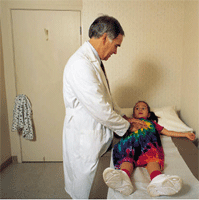
Keep it to yourself? The costly stigma of mental illness
Sixteen years after the Americans with Disabilities Act (ADA) passed, workers with mental illness still face a disheartening choice: keep their health problems a secret at work, or risk being shunned, passed over, paid up to one-third less, or even fired, according to a new study conducted by the School of Health Management and Policy at the W.P. Carey School of Business.





